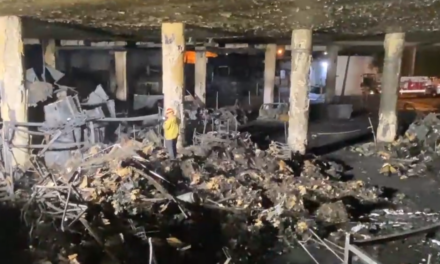Walmart, Incorporated a U.S.-based multinational retailer and its wholly owned Brazilian subsidiary, WMT Brasilia S.a.r.l., have agreed to pay a combined criminal penalty of $137 million to resolve the government’s investigation into violations of the Foreign Corrupt Practices Act. WMT Brasilia pleaded guilty Thursday in connection with the resolution.
“Walmart profited from rapid international expansion, but in doing so chose not to take necessary steps to avoid corruption,” said Assistant Attorney General Brian Benczkowski. “In numerous instances, senior Walmart employees knew of failures of its anti-corruption-related internal controls involving foreign subsidiaries, and yet Walmart failed for years to implement sufficient controls comporting with U.S. criminal laws. As today’s resolution shows, even the largest of U.S. companies operating abroad are bound by U.S. laws, and the Department of Justice will continue to aggressively investigate and prosecute foreign corruption.”
“Walmart violated the Foreign Corrupt Practices Act because it failed to implement the internal controls necessary to ferret out corrupt conduct,” said U.S. Attorney Zachary Terwilliger. “For more than a decade, Walmart experienced exponential international growth but failed to create safeguards to protect against corruption risks in various countries. This resolution is the result of several years of steadfast work by the prosecutors and our law enforcement partners at the FBI and IRS-CI.”
“Walmart’s guilty plea is another step in IRS-CI’s ongoing effort to pursue corporations that engage in corruption that prevents fair competition around the world,” said IRS-CI Special Agent in Charge Jackson. “Through our efforts, we delved through layers of transactions and uncovered the bribery of foreign officials. Today’s announcement is a statement that no company, even one as large as Walmart, is above the law.”
According to Walmart’s admissions, from 2000 until 2011, certain Walmart personnel responsible for implementing and maintaining the company’s internal accounting controls related to anti-corruption were aware of certain failures involving these controls, including relating to potentially improper payments to government officials in certain Walmart foreign subsidiaries, but nevertheless failed to implement sufficient controls that, among other things, would have ensured: (a) that sufficient anti-corruption-related due diligence was conducted on all third-party intermediaries (TPIs) who interacted with foreign officials; (b) that sufficient anti-corruption-related internal accounting controls concerning payments to TPIs existed; (c) that proof was required that TPIs had performed services before Walmart paid them; (d) that TPIs had written contracts that included anti-corruption clauses; (e) that donations ostensibly made to foreign government agencies were not converted to personal use by foreign officials; and (f) that policies covering gifts, travel and entertainment sufficiently addressed giving things of value to foreign officials and were implemented. Even though senior Walmart personnel responsible for implementing and maintaining the company’s internal accounting controls related to anti-corruption knew of these issues, Walmart did not begin to change its internal accounting controls related to anti-corruption to comply with U.S. criminal laws until 2011.
The internal controls failures allowed Walmart foreign subsidiaries in Mexico, India, Brazil and China to hire TPIs without establishing sufficient controls to prevent those TPIs from making improper payments to government officials in order to obtain store permits and licenses. In a number of instances, insufficiencies in Walmart’s anti-corruption-related internal accounting controls in these foreign subsidiaries were reported to senior Walmart employees and executives. The internal control failures allowed the foreign subsidiaries in Mexico, India, Brazil and China to open stores faster than they would have with sufficient internal accounting controls related to anti-corruption. Consequently, Walmart earned additional profits through these subsidiaries by opening some of its stores faster.
In Mexico, a former attorney for Walmart’s local subsidiary reported to Walmart in 2005 that he had overseen a scheme for several years prior in which TPIs made improper payments to government officials to obtain permits and licenses for the subsidiary and that several executives at the subsidiary knew of and approved of the scheme. Most of the TPI invoices included a code specifying why the subsidiary had made the improper payment, including: (1) avoiding a requirement; (2) influence, control or knowledge of privileged information known by the government official; and (3) payments to eliminate fines.
In India, because of Walmart’s failure to implement sufficient internal accounting controls related to anti-corruption, from 2009 until 2011, Walmart’s operations there were able to retain TPIs that made improper payments to government officials in order to obtain store operating permits and licenses. These improper payments were then falsely recorded in Walmart’s joint venture’s books and records with vague descriptions like “misc fees,” “miscellaneous,” “professional fees,” “incidental” and “government fee.”
In Brazil, as a result of Walmart’s failure to implement sufficient internal accounting controls related to anti-corruption at its subsidiary, Walmart Brazil, despite repeated findings in internal audit reports that such controls were lacking, Walmart Brazil continued to retain and renew contracts with TPIs without conducting the required due diligence. Improper payments were in fact paid by some of these TPIs, including a construction company that made improper payments to government officials in connection with the construction of two Walmart Brazil stores in 2009 without the knowledge of Walmart Brazil. Walmart Brazil indirectly hired a TPI whose ability to obtain licenses and permits quickly earned her the nickname “sorceress” or “genie” within Walmart Brazil. Walmart Brazil employees, including a Walmart Brazil executive, knew they could not hire the intermediary directly because of several red flags. In 2009, the TPI made improper payments to government inspectors in connection with the construction of a Walmart Brazil store without the knowledge of Walmart Brazil. WMT Brasilia was a wholly-owned subsidiary of Walmart and was a majority-owner of Walmart Brazil, Walmart’s wholly-owned subsidiary in Brazil, and the majority-owner of retail stores operating as Walmart Brazil.
In China, Walmart’s local subsidiary’s internal audit team flagged numerous weaknesses in internal accounting controls related to anti-corruption at the subsidiary between 2003 and 2011, sometimes repeatedly, but many of these weaknesses were not addressed. In fact, from 2007 until early 2010, Walmart and the subsidiary failed to address nearly all of the anti-corruption-related internal controls audit findings.
Walmart entered into a three-year non-prosecution agreement and agreed to retain an independent corporate compliance monitor for two years. The $137 million penalty reflects a 20 percent reduction off the bottom of the applicable U.S. Sentencing Guidelines fine range for the portion of the penalty applicable to conduct in Mexico and 25 percent for the portion applicable to the conduct in Brazil, China and India. Walmart fully cooperated with the investigation in Brazil, China and India. Walmart cooperated with the investigation in Mexico, but did not timely provide documents and information to the government and did not de-conflict with the government’s request to interview one witness before Walmart interviewed that witness. Walmart did not voluntarily disclose the conduct in Mexico and only disclosed the conduct in Brazil, China and India after the government had already begun investigating the Mexico conduct. The $137 million penalty includes forfeiture of $3.6 million and a fine of $724,898 from WMT Brasilia.
In a related resolution with the U.S. Securities and Exchange Commission (SEC), Walmart agreed to disgorge $144 million in profits.




